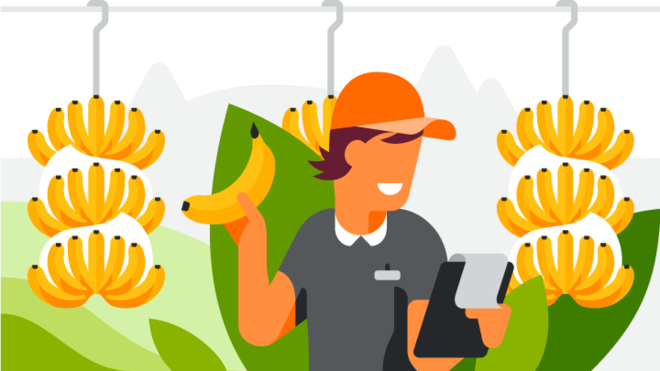
Noomi Järgerhorn (M.Soc.Sc.) has been appointed as Kesko’s Vice President of Sustainability. She will join the company on 1 May 2025, and assume her new position on 1 June 2025 at the latest.


The banana is the most popular fruit in Finland and the average Finn eats almost 20 kilos of bananas every year.
Banana production has become more challenging due to climate change and the extreme weather conditions it causes. Drought increases the need for irrigation, while moisture caused by increased precipitation enhances the risk of diseases. Investing in environmentally sustainable production methods is important so that banana farming can continue in the future.
“We reveal the origin and route of the K-stores’ firm favourite to Finland and the sustainability efforts behind the product on the ‘Tracing our products’ site. Among other things, we tell you about the most important farmers of Pirkka Luomu Fairtrade bananas, environmentally sustainable production methods and what the Fairtrade Premium is used for in banana farms,” says Timo Jäske, the Vice President of Sustainability for K Group’s grocery trade division.
Organic production has many environmental advantages over conventional production methods. Organic fields have greater biodiversity and organic cultivation maintains soil fertility better than conventional cultivation methods. In addition, Fairtrade promotes environmentally friendly banana production in many ways. To be able to sell their products as Fairtrade products, farms must, among other things, protect forests, reduce climate emissions, as well as reduce the consumption of energy and water and the use of pesticides and fertilisers.
The journey of Fairtrade bananas from Ecuadorian plantations to Finland takes about five weeks in total. When arriving in Finland, the bananas are still green and raw. All bananas sold in K-Ruoka grocery stores are ripened at the K-Group banana ripening plant in Hakkila, Vantaa. The banana ripening plant has 30 ripening rooms that can hold a total of almost a million kilograms of bananas.
“More transparent information is expected from companies about where the products come from, how their environmental effects are minimised and how the working conditions are monitored – this is what we strive to answer on our ‘Tracing our products’ site. The K Group’s own brand products are chosen for the site, especially those with challenges in the sustainable production of raw materials,” says Jäske.
In addition to the Pirkka Luomu Fairtrade banana, the site tells consumers about the origin and route of mywear t-shirts, all Pirkka and K-Menu canned tuna products, Pirkka Fairtrade roses and PROF Timber to K-stores. Products requested by customers and other stakeholders will be added to the site in the future.
 YES
YES
 NO
NO